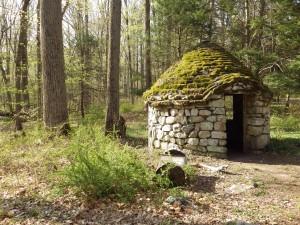Study: Forests boost Connecticut economy by billions every year
A recent study shows that Connecticut”™s forests provide a quantifiable multibillion-dollar economic boost every year in addition to upholding their usual responsibilities in the arenas of beauty, habitat, resource protection and summertime shade.
The study was conducted by the North East State Foresters Association, a group composed of foresters from the region cooperating with the U.S. Forest Service and private forest interests.
The study said the state”™s forests contribute $3.3 billion annually to the state economy.
The annual gross state output of Connecticut”™s forest products industry accounts for more than $2.1 billion of the total. The forest-based recreation economy generates another $1.2 billion per year, with 25 percent of that coming from autumn leaf peepers.
The report also calculated that 8,200 Connecticut workers are employed in the production of forest products. Forest-based recreation supports another 4,600 jobs.
“Connecticut”™s forests make up 56 percent of the land area of our state and are very much a signature characteristic that forms the basis for the enviable quality of life we enjoy here,” said Robert Klee, commissioner of Connecticut”™s Department of Energy and Environmental Protection. “We must focus on sustainable management of the important resource our woodlands represent, especially in the face of new threats presented by climate change, so that we may continue to benefit from the environmental, economic, and recreational advantages they offer.”
With approximately 1.8 million acres of forest land ”“ 73 percent of which is owned by families ”“ DEEP reports Connecticut grows approximately 96 million cubic feet of timber annually with approximately 13.7 million cubic feet of timber harvested annually.
The study found 56 percent of the state is forest and:
Ӣ The net volume of standing trees that are sawtimber size, the most valuable forest product, increased 94 percent from 1985 to 2013.
Ӣ The state is adding 82 million cubic feet to its standing wood inventory every year, even as its forests witness a 14 percent annual harvest (13,703,316 cubic feet).
Ӣ Secondary wood products sales, where logs are transformed into products such as furniture, cabinets and flooring, accounted for an annual economic output of $418 million, supported by $118 million in payroll in Connecticut.
Ӣ Wood for heat is booming, with the number of homes that heat primarily with wood more than doubling (up 120 percent) in the seven years leading to 2012, with 29,000 in-state homes using wood or wood pellets.
Still, the report noted, “Overall economic numbers from 2000 to 2013 trend downward due to the recent recession. With continued economic recovery some sectors are expected to recover and possibly exceed historical values.”
The study”™s primary author, Charles Levesque of the New Hampshire/Maine-based Innovative Natural Resource Solution”™s LLC, said, “The data and information that forms the backbone of this report comes from key credible sources such as the U.S. departments of Commerce, Agriculture and Interior. These agencies have been collecting this data for decades, which has allowed us to look at trends, which is so important to understanding how the forest-based economy in Connecticut is doing. With the completion of the Connecticut, Massachusetts and Rhode Island reports, we now have this key information for all of New England and New York.”
